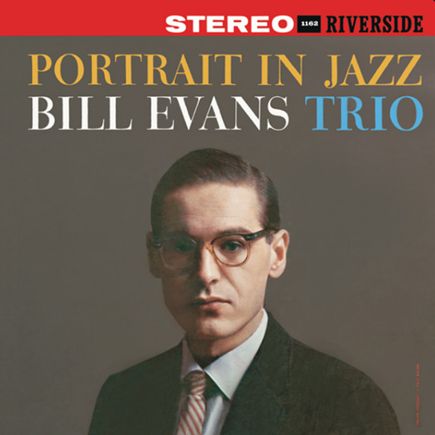Come Rain or Come Shine: entre passion inaltérable et lyrisme sophistiqué
Une ballade née du théâtre musical
Composé en 1946 par Harold Arlen, sur des paroles de Johnny Mercer, Come Rain or Come Shine s’impose comme l’un des standards vocaux les plus intenses du jazz. Écrite pour la comédie musicale St. Louis Woman, la chanson repose sur une structure harmonique volontairement sobre, au service d’une ligne mélodique ample et expressive. Si le spectacle fut un échec commercial, interrompu après 113 représentations, le morceau, créé sur scène par Ruby Hill et Harold Nicholas, s’en affranchit rapidement pour connaître une destinée autonome.
Une déclaration d’amour universelle
La force de Come Rain or Come Shine tient à l’équilibre entre le lyrisme contrasté d’Arlen et l’écriture directe, presque dépouillée, de Mercer. Le texte affirme une fidélité absolue, sans détour ni pathos excessif, tandis que la musique soutient cette promesse par une tension émotionnelle constante. Cette alliance confère au morceau une dimension transgénérationnelle, capable de traverser les styles sans perdre son intensité, du jazz vocal classique aux relectures plus contemporaines.
Un standard aux visages multiples
Derrière son apparente simplicité, Come Rain or Come Shine offre une richesse interprétative remarquable. Chaque lecture en révèle une facette distincte: dramatique chez Billie Holiday, feutrée chez Sarah Vaughan, théâtrale avec Judy Garland ou Barbra Streisand, ancrée dans le swing pour Ray Charles, ou réinventée en langage modal par Bill Evans. Cette plasticité tient à un matériau mélodique ouvert et à une harmonie propice à l’improvisation. En 1986, l’interprétation de Diane Schuur sera consacrée par un Grammy, confirmant la vitalité durable du standard.
Bill Evans et l’art du trio en pleine métamorphose
Enregistrée le 28 décembre 1959 à New York, la version de Come Rain or Come Shine par le trio de Bill Evans — avec Scott LaFaro à la contrebasse et Paul Motian à la batterie — illustre à merveille la profonde transformation esthétique que connaît le jazz à la charnière des années 1950 et 1960. Dans cette lecture, le thème ne sert pas seulement de prétexte à l’improvisation: il est déconstruit, réharmonisé, traversé d’ombres et de lumières.
Evans y déploie une palette harmonique d’une finesse remarquable, jouant sur les modulations inattendues, les accords ouverts et les tensions retenues. Dès les premières mesures, sa sonorité douce et percussive invite à l’écoute intérieure. Mais c’est surtout l’interaction entre les trois musiciens qui donne à cette version sa singularité. LaFaro s’émancipe du simple rôle d’assise harmonique ou rythmique: ses interventions sont mélodiques, libres, parfois presque solistes, mais toujours en dialogue étroit avec le piano.
Paul Motian, quant à lui, adopte une approche aérienne et subtile de la batterie. Son jeu, tout en finesse, sert de liant entre les lignes de piano et de contrebasse, accentuant la souplesse de l’ensemble. Avec cette version de Come Rain or Come Shine, le trio Evans-LaFaro-Motian esquisse une nouvelle forme de musique de chambre jazz, fondée sur l’écoute réciproque, la respiration collective et l’abandon des hiérarchies traditionnelles.
Come Rain or Come Shine: entre pasión inalterable y lirismo sofisticado
Una balada nacida del teatro musical
Compuesta en 1946 por Harold Arlen, con letra de Johnny Mercer, Come Rain or Come Shine se impone como uno de los estándares vocales más intensos del jazz. Escrita para la comedia musical St. Louis Woman, la canción se apoya en una estructura armónica deliberadamente sobria, al servicio de una línea melódica amplia y expresiva. Aunque el espectáculo fue un fracaso comercial, interrumpido tras ciento trece funciones, el tema, estrenado en escena por Ruby Hill y Harold Nicholas, se emancipó rápidamente para iniciar una trayectoria autónoma.
Una declaración de amor universal
La fuerza de Come Rain or Come Shine reside en el equilibrio entre el lirismo contrastado de Arlen y la escritura directa, casi desnuda, de Mercer. El texto afirma una fidelidad absoluta, sin rodeos ni exceso de pathos, mientras que la música sostiene esta promesa mediante una tensión emocional constante. Esta alianza otorga a la obra una dimensión transgeneracional, capaz de atravesar estilos sin perder intensidad, del jazz vocal clásico a lecturas más contemporáneas.
Un estándar de múltiples rostros
Tras su aparente sencillez, Come Rain or Come Shine ofrece una notable riqueza interpretativa. Cada versión revela una faceta distinta: dramática con Billie Holiday, contenida con Sarah Vaughan, teatral con Judy Garland o Barbra Streisand, arraigada en el swing con Ray Charles, o reinterpretada en clave modal por Bill Evans. Esta plasticidad se apoya en un material melódico abierto y en una armonía favorable a la improvisación. En 1986, la interpretación de Diane Schuur fue distinguida con un Grammy, confirmando la vitalidad duradera del estándar.
Bill Evans y el arte del trío en plena metamorfosis
Grabada el 28 de diciembre de 1959 en Nueva York, la versión de Come Rain or Come Shine interpretada por el trío de Bill Evans — con Scott LaFaro en el contrabajo y Paul Motian en la batería — ilustra de manera ejemplar la profunda transformación estética que atraviesa el jazz en el tránsito entre las décadas de 1950 y 1960. En esta lectura, el tema no es simplemente un punto de partida para la improvisación: se deconstruye, se reharmoniza, se impregna de sombras y luces.
Evans despliega aquí una paleta armónica de una delicadeza excepcional, jugando con modulaciones inesperadas, acordes abiertos y tensiones contenidas. Desde los primeros compases, su sonoridad suave y percusiva invita a una escucha introspectiva. Pero es sobre todo la interacción entre los tres músicos lo que confiere a esta versión su carácter singular. LaFaro se libera del mero papel de soporte rítmico u armónico: sus intervenciones son melódicas, libres, a veces casi solistas, pero siempre en diálogo estrecho con el piano.
Paul Motian, por su parte, adopta un enfoque aéreo y sutil de la batería. Su interpretación, llena de matices, actúa como nexo entre las líneas del piano y del contrabajo, acentuando la fluidez del conjunto. Con esta versión de Come Rain or Come Shine, el trío Evans-LaFaro-Motian esboza una nueva forma de música de cámara jazz, basada en la escucha mutua, la respiración compartida y el abandono de las jerarquías tradicionales.
Come Rain or Come Shine: tra passione incrollabile e lirismo sofisticato
Una ballata nata dal teatro musical
Composta nel 1946 da Harold Arlen, con testo di Johnny Mercer, Come Rain or Come Shine si afferma come uno degli standard vocali più intensi del jazz. Scritta per la commedia musicale St. Louis Woman, la canzone si fonda su una struttura armonica volutamente sobria, al servizio di una linea melodica ampia ed espressiva. Sebbene lo spettacolo fosse un insuccesso commerciale, interrotto dopo centotredici repliche, il brano, presentato in scena da Ruby Hill e Harold Nicholas, si emancipò rapidamente, intraprendendo un percorso autonomo.
Una dichiarazione d’amore universale
La forza di Come Rain or Come Shine risiede nell’equilibrio tra il lirismo contrastato di Arlen e la scrittura diretta, quasi spoglia, di Mercer. Il testo afferma una fedeltà assoluta, senza enfasi superflua, mentre la musica sostiene questa promessa attraverso una tensione emotiva costante. Questa alleanza conferisce al brano una portata transgenerazionale, capace di attraversare gli stili senza perdere intensità, dal jazz vocale classico alle riletture più contemporanee.
Uno standard dai molti volti
Dietro un’apparente semplicità, Come Rain or Come Shine offre una ricchezza interpretativa notevole. Ogni versione ne rivela un volto diverso: drammatico con Billie Holiday, raccolto con Sarah Vaughan, teatrale con Judy Garland o Barbra Streisand, radicato nello swing con Ray Charles, o reinventato in chiave modale da Bill Evans. Questa plasticità deriva da un materiale melodico aperto e da un’armonia favorevole all’improvvisazione. Nel 1986, l’interpretazione di Diane Schuur venne premiata con un Grammy, confermando la vitalità duratura dello standard.
Bill Evans e l’arte del trio in piena metamorfosi
Registrata il 28 dicembre 1959 a New York, la versione di Come Rain or Come Shine del trio di Bill Evans — con Scott LaFaro al contrabbasso e Paul Motian alla batteria — illustra perfettamente la profonda trasformazione estetica che attraversa il jazz tra la fine degli anni Cinquanta e l’inizio dei Sessanta. In questa rilettura, il tema non è solo un pretesto per l’improvvisazione: viene decostruito, reharmonizzato, attraversato da ombre e luci.
Evans dispiega una tavolozza armonica di straordinaria finezza, giocando con modulazioni inattese, accordi aperti e tensioni trattenute. Fin dalle prime battute, il suo suono morbido e percussivo invita all’ascolto interiore. Ma è soprattutto l’interazione tra i tre musicisti a conferire a questa versione la sua originalità. LaFaro si emancipa dal semplice ruolo di sostegno armonico o ritmico: i suoi interventi sono melodici, liberi, a tratti quasi solistici, ma sempre in dialogo stretto con il pianoforte.
Paul Motian, dal canto suo, adotta un approccio aereo e sottile alla batteria. Il suo stile raffinato funge da collante tra le linee del piano e del contrabbasso, accentuando la fluidità dell’insieme. Con questa versione di Come Rain or Come Shine, il trio Evans-LaFaro-Motian delinea una nuova forma di musica da camera jazz, fondata sull’ascolto reciproco, la respirazione collettiva e l’abbandono delle gerarchie tradizionali.
Come Rain or Come Shine: between enduring passion and refined lyricism
A ballad born from musical theater
Composed in 1946 by Harold Arlen, with lyrics by Johnny Mercer, Come Rain or Come Shine stands as one of the most emotionally powerful vocal standards in jazz. Written for the musical St. Louis Woman, the song is built on a deliberately restrained harmonic structure that supports a broad, expressive melodic line. Although the show was a commercial failure, closing after 113 performances, the piece, introduced on stage by Ruby Hill and Harold Nicholas, quickly gained independence and embarked on a life of its own.
A universal declaration of love
The strength of Come Rain or Come Shine lies in the balance between Arlen’s contrasting lyricism and Mercer’s direct, almost stripped-down writing. The lyrics proclaim unwavering devotion without excess sentimentality, while the music sustains this pledge through constant emotional tension. This alliance gives the song a transgenerational reach, allowing it to cross stylistic boundaries without losing intensity, from classic vocal jazz to more contemporary interpretations.
A standard with many faces
Beneath its apparent simplicity, Come Rain or Come Shine offers remarkable interpretive depth. Each rendition reveals a distinct facet: dramatic with Billie Holiday, intimate with Sarah Vaughan, theatrical with Judy Garland or Barbra Streisand, grounded in swing with Ray Charles, or reimagined in a modal language by Bill Evans. This flexibility stems from open melodic material and harmony well suited to improvisation. In 1986, Diane Schuur’s interpretation received a Grammy Award, confirming the standard’s enduring vitality.
Bill Evans and the art of the trio in full transformation
Recorded on December 28, 1959, in New York, the version of Come Rain or Come Shine by the Bill Evans Trio — with Scott LaFaro on bass and Paul Motian on drums — perfectly captures the deep aesthetic shift that jazz was undergoing at the turn of the 1950s and 1960s. In this rendition, the theme is not merely a framework for improvisation: it is deconstructed, reharmonized, and infused with both shadows and light.
Evans unveils a remarkably refined harmonic palette, playing with unexpected modulations, open voicings, and restrained tensions. From the very first bars, his soft yet percussive touch invites introspective listening. But it is above all the interplay between the three musicians that gives this version its distinctive character. LaFaro moves beyond a traditional supporting role: his contributions are melodic, free, at times nearly soloistic, yet always closely intertwined with the piano.
Paul Motian, in turn, adopts an airy and nuanced approach to the drums. His subtle playing acts as a connective tissue between the piano and bass lines, enhancing the overall fluidity. With this version of Come Rain or Come Shine, the Evans-LaFaro-Motian trio sketches a new form of jazz chamber music—one built on mutual listening, shared breath, and the abandonment of traditional hierarchies.


